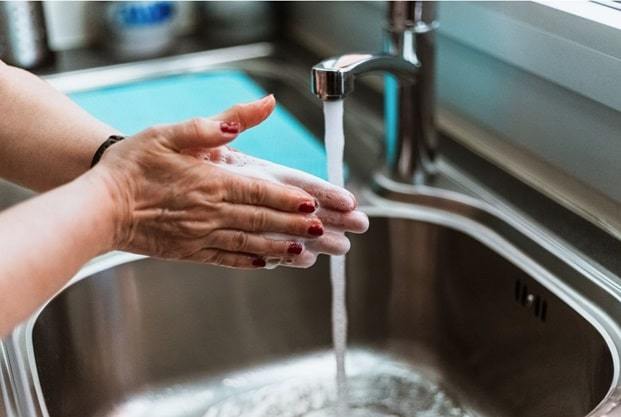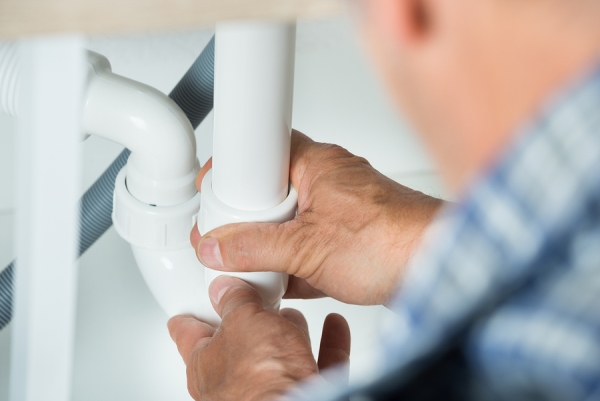Ways to Manage Urgent Pipe Problems with Temporary Solutions Until Help Arrives
Ways to Manage Urgent Pipe Problems with Temporary Solutions Until Help Arrives
Blog Article
How do you feel on the subject of What to Do While Waiting for an Emergency Plumber?

Plumbing emergencies can strike any time, creating stress and possible damages to your home. Whether it's a burst pipe, a stopped up drainpipe, or a leaky tap, knowing exactly how to handle the scenario till a specialist plumber arrives can save you from additional issues. This write-up provides important emergency plumbing pointers to help you reduce damage and restore control throughout a plumbing crisis.
Shut off the Water System
The primary step in any kind of pipes emergency situation is to shut down the water supply. For local concerns, such as a dripping tap or commode, switch off the shutoff near the component. When it comes to a significant leakage or ruptured pipeline, find your home's primary water shut-off shutoff and turn it off right away. Knowing the location of these valves ahead of time can conserve valuable time during an emergency.
Address Small Leaks with Short-term Repairs
Tiny leakages can promptly come to be substantial problems if left unchecked. Use these short-term fixes until expert assistance shows up:
While these solutions aren't irreversible, they can aid lessen water loss and damages.
Unclog Drains Pipes Safely
A blocked drain can be a frustrating and unpleasant problem. Right here's exactly how to tackle it:
If these techniques don't function, prevent using too much pressure, as it may aggravate the blockage.
Take Care Of Overflowing Toilets
An overruning toilet can create instant chaos. Below's what you must do:
Shut Off Your Water Heater
In particular emergency situations, such as a ruptured pipe, it's wise to shut off your hot water heater. This stops overheating or damage to the device when water quits streaming. Shut off the power supply to the water heater (electric or gas) and allow it cool off to prevent possible dangers.
Temporarily Quit a Burst Pipeline
A burst pipeline can result in significant water damage in mins. To alleviate the issue:
Call a professional plumbing immediately to attend to the problem completely.
Deal With Frozen Piping Thoroughly
In cooler climates, icy pipes are an usual emergency situation. If you suspect an icy pipe:
Avoid More Damages
Taking quick action to reduce damages can conserve you time and money in the long run. Here's exactly how:
. Have an Emergency Situation Pipes Kit
Prepare a fundamental pipes emergency situation kit to take care of minor issues successfully. Your package should include:
Having these tools handy can make a substantial distinction in your ability to manage emergencies.
Know When to Call an Expert.
While quick fixes can assist momentarily, particular pipes issues require prompt specialist focus. Call a plumber if:.
Quickly getting in touch with an expert guarantees the problem is fixed properly and avoids additional problems.
Conclusion.
Plumbing emergencies can be frustrating, however with the right expertise and devices, you can handle the situation effectively till assistance arrives. By switching off the water system, dealing with tiny leaks, and using short-lived repairs, you can minimize damages and keep your home safe. Bear in mind, these ideas are short-term remedies; constantly consult a qualified plumbing technician to handle the origin of the problem. Prep work and quick reasoning are your finest allies in any kind of pipes emergency.
8 Helpful Tips for Managing Plumbing Emergencies at Home
If your plumbing system hasn’t failed once, wait for it because almost everyone has a story to tell. Sometimes, it could be simple emergencies such as a leaking pipe, a blocked cistern, or even a big burst pipe. In situations like this, you need to have some handy tips to save you some money and from possible damages.
Take care of minor issues early.
Sometimes, you could have avoided an emergency by taking proactive measures while it was still early. Some major plumbing emergencies can be a result of an ignored minor issue. We recommend that you have items like plumbing tapes and other related items. A plumbing tape can allow you to manage minor leaks before the plumber arrives.
Cut off the water supply.
This tip is essential in almost any type of leakage problem. For problems like minor leakages in the toilet or kitchen, turn off the supply that takes water to the affected pipes. If the leakage is a major pipe, you must shut off the supply valve to the entire building. This will help you avoid flooding your home and neighbors if you share a flat.
Know your plumbing system
Folks typically move into a new apartment without understanding the water supply around the building. This can prove disastrous if a water emergency arises and the plumber is far away. The previous tip will prove useless if you don’t practice this one. More importantly, know where your water shut-off valve is located – you’ll need that knowledge to prevent potential home floods.
Have some common handy tools
There are lots of plumbing emergencies that you can handle without hiring a plumber. That’s why you must keep some tools available always. Some tools that you can use to fix simple plumbing emergencies easily include plumbing tapes, screwdrivers, thread seal tapes, plungers, pliers, tape measures, and rubber gloves.
Insulate your pipes from cold
You’ll save yourself from many plumbing expenses if you protect your water pipes from the cold. This is because of the harmful effects that cold weather can have on your pipes. During winter, your pipes can burst from being overly expected to freezing temperatures. So, make sure insulators are there to keep the pipes working correctly.
Avoid practices that will clog your toilet.
Many people indulge in practices that can damage the plumbing system of the entire building. One of these is when they use their toilet to dispose-off garbage. They flush all kinds of things, such as paper towels, bandages, hairs, female sanitary products, etc., down the toilet. This will block your toilet in the long run, incurring unnecessary expenditures. Dump such waste in the trash instead.
Check your dials regularly.
Sometimes, there could be leakages in your home without noticing them in time. So, constantly monitor your water meter dial. If the dial is reading when there is nobody using water, this is an indicator that there is leaking. Check for leaks immediately. Call a plumber as soon as possible if you can’t find any.
https://www.constructionplacements.com/8-helpful-tips-for-managing-plumbing-emergencies-at-home/

As an avid person who reads about What to Do While Waiting for an Emergency Plumber, I assumed sharing that piece of content was smart. Sharing is caring. Helping people is fun. We recognize the value of reading our article about What to Do While Waiting for an Emergency Plumber.
Call Today Report this page